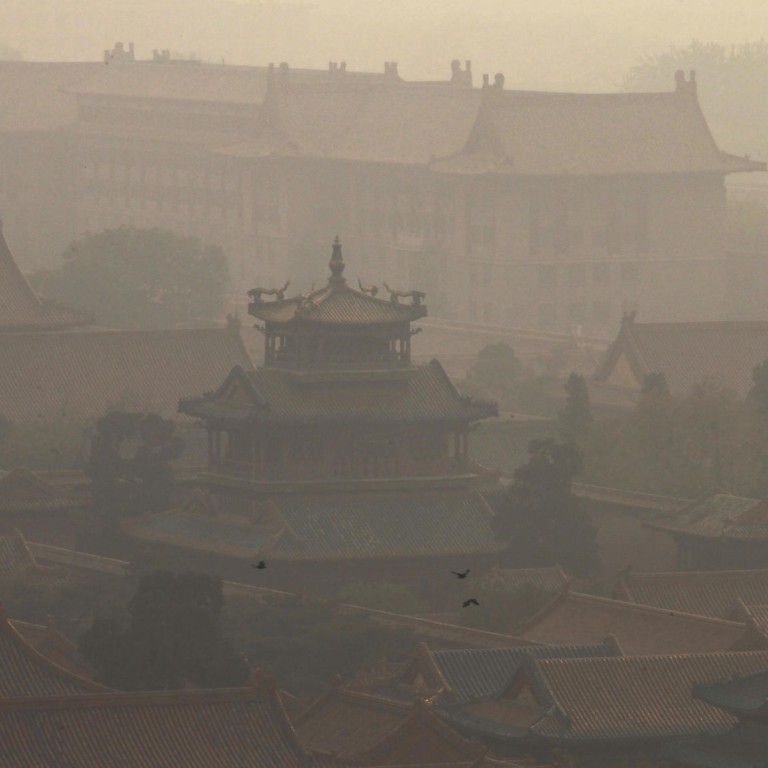
Beijing recruits scientists to tackle air pollution, but doesn't say how
Beijing will start experimenting with measures to disperse its notorious smog on heavily polluted days, vice-mayor Lin Keqing told a work conference, according to Xinhua.
China pioneered cloud-seeding to induce rain - now it wants to use technology to clear the air.
Beijing will start experimenting with measures to disperse its notorious smog on heavily polluted days, vice-mayor Lin Keqing told a work conference yesterday, according to Xinhua.
Lin did not elaborate on the measures, but his announcement followed the release last month by the China Meteorological Administration of a document which said all provincial-level meteorological bureaus should be able to artificially reduce smog by 2015.
During the Olympic Games in 2008, Beijing fired 1,100 silver iodide rockets to disperse rain clouds on the eve of the opening ceremony. Some have proposed the same measure could help wash away the fine pollutants clogging the air on smoggy days.
But some meteorologists are not so keen on the idea.
"Weather modification to reduce smog remains a very sensitive topic … and the research is still quite limited," said a Beijing-based expert on weather modification, speaking on condition of anonymity. "Simply speaking, on some smoggy days the atmospheric conditions may not be suitable for cloud-seeding." He explained that on heavily polluted days there were simply too many particles in the air to make cloud-seeding effective.
, an official newspaper under the Ministry of Science and Technology, reported last week that scientists had yet to find truly effective measures to reduce smog.
Guo Xueliang, of the Chinese Academy of Meteorological Sciences, told the newspaper that the two possible methods undergoing trials - cloud seeding and artificial fog removal - could only prove effective when conditions were right. Guo did not explain what artificial fog removal entailed.
The vice-mayor also said more than half of the city's 20 national-level meteorological observatories had suffered damage, five of which had been forced to relocate, and the city's two meteorological radar systems had been affected by high-rise buildings nearby.
Beijing will add more than 200 automatic observatories and eight meteorological radar systems by 2015 to enhance the accuracy of the capital's weather forecasts, Xinhua reported.

